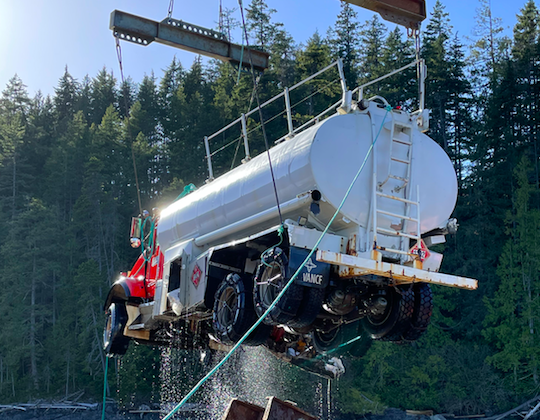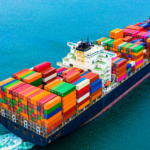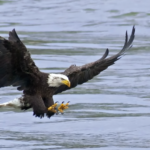On Thursday, April 13, at suppertime, Guy Adams of Campbell River got a phone call that nobody with a marine business would want to receive: a tanker truck with a load of diesel fuel had come off one of his transport barges and was on the seabed, leaking fuel into a sensitive ocean environment.
“My crew phoned me at 6 pm and informed me what happened,” Adams told West Coast Now. “By 6:30, I’d reported to the Canadian Coast Guard Environmental Response program, my insurance company, and a friendly tug and barge company that I knew was in the area, to check on my guys.”
As president and owner of Marine Sea Link, which owns the barge, Adams was responsible for fixing the crisis with responders. As the hours turned into days, he worried about the safety of his crew, area residents, and the marine environment in Chancellor Channel off Vancouver Island.
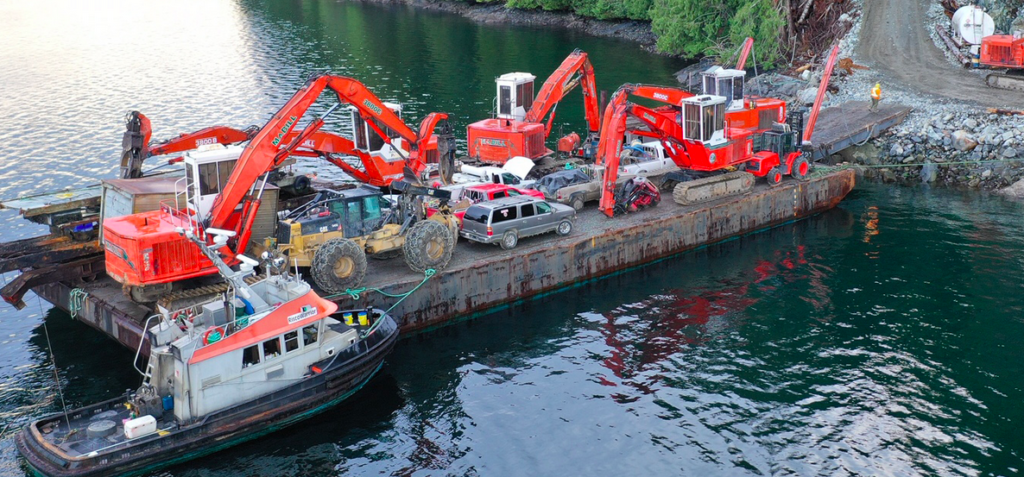
Quote and Image Source: Marine Link Transportation.
The accident was the company’s “first time ever, and I’ve been doing this since 1984,” said Adams, whose company operates large transport barges serving remote sites on B.C.’s coast, using big ramps to offload goods and equipment to communities and industrial and forestry work camps. “This was not our greatest moment.”
The rescue was complicated–and dependent on the weather clearing.
A plan was drafted to float a barge carrying a heavy crane above the truck, lower heavy cables, which divers attached to the truck, and then hoist the truck to a second Marine Sea Link barge stationed beside it, said Adams.
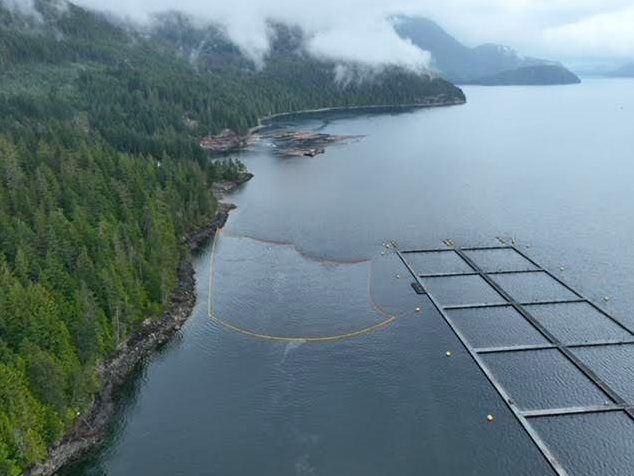
It would take more than a week before the truck–minus about 1,700 litres from the total 17,000 litres of diesel fuel it carried–was pulled up from the seabed on Friday, April 28. Responders meanwhile laid some 1.2 kilometers of booms in the area to try to protect the shoreline from any leaking fuel, and the industry agency Western Canada Marine Response Corporation sent two vessels, the Cortes Sentinel and Sentinel 32, to the area.
The industry response corporation, Adams’ company, the provincial environment ministry, and the Wei Wai Kum, We Wai Kai, and K’ómoks First Nations cooperated in the rescue, said a media statement from Unified Command.
A Transport Canada investigation into the incident is expected, and concerns remain about the long-term environmental impact.
“There was a unique set of circumstances, including incredibly bad weather and, yet to be determined, perhaps a couple of bad choices.”
Guy Adams, president and owner of Marine Sea Link
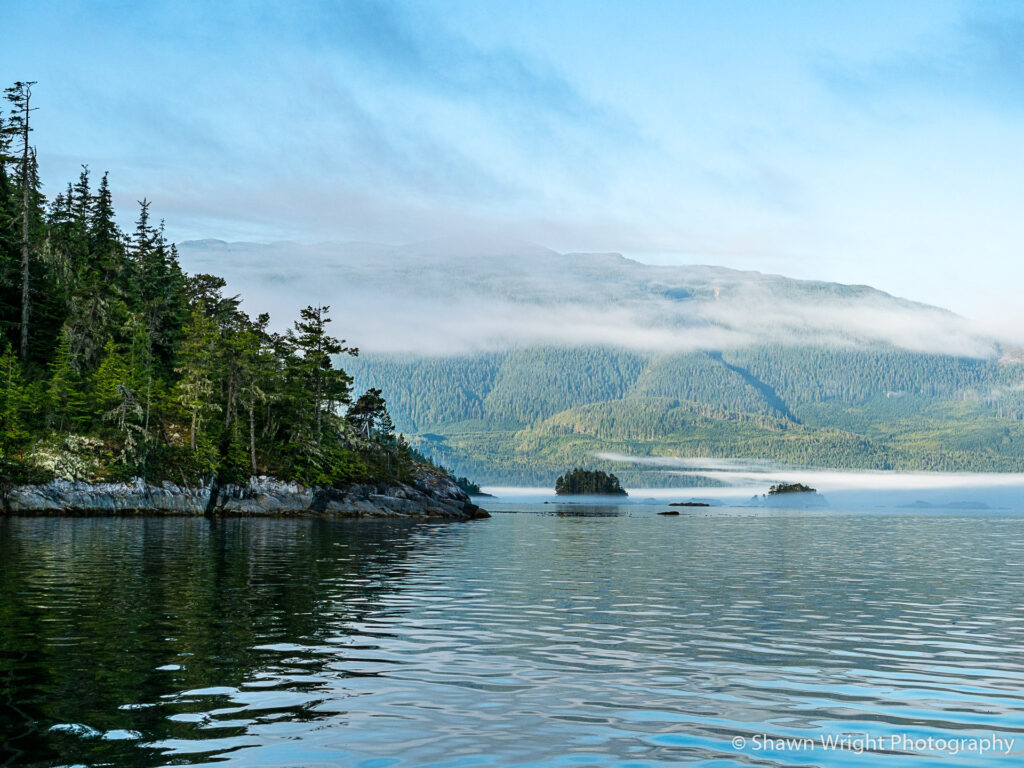
“Johnstone Strait is one of the hardest parts of the wild salmon migration route: strong currents, relatively little food, and long distances between refuges,” notes a social media post by the Living Oceans Society, while the Skilled Truckers Canada page notes that the area “includes a rockfish-conservation area.”
Now that the truck is out of the water, “The only part we don’t really have determined yet is the ‘why,’” Adams told the website My Campbell River Now.
“We have a sense of responsibility. We live here. This is our backyard. Our customers are in the area, and this is their backyard, including a lot of First Nations groups.”
Guy Adams president and owner of Marine Sea Link
Adams says it will take a while to figure out what went wrong. “There was a unique set of circumstances, including incredibly bad weather and, yet to be determined, perhaps a couple of bad choices,” he said.
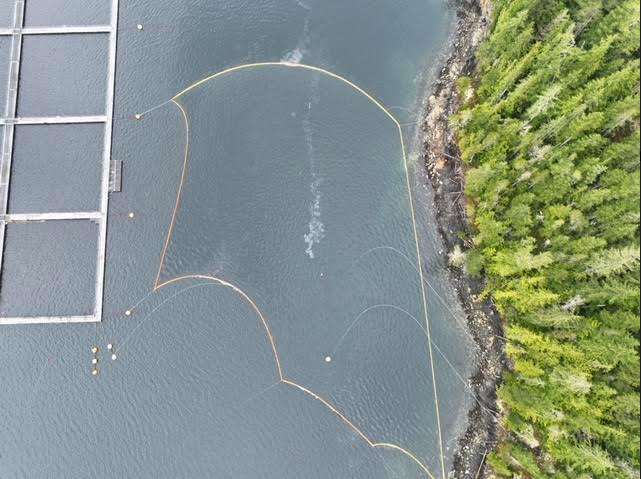
None of the workers were injured, he said, aside from “some bruised egos and some disrupted sleep.”
“The weather was horrible that day, with a huge Southeast storm,” said Adams. The barge crew had sought shelter from the rough seas and wind, delaying their delivery of the truck to a logging camp on the edge of Hardwicke Island by six hours.
Adams said the company is being transparent and fully involved in the rescue and investigation because “we have a sense of responsibility. We live here. This is our backyard. Our customers are in the area, and this is their backyard, including a lot of First Nations groups.”




